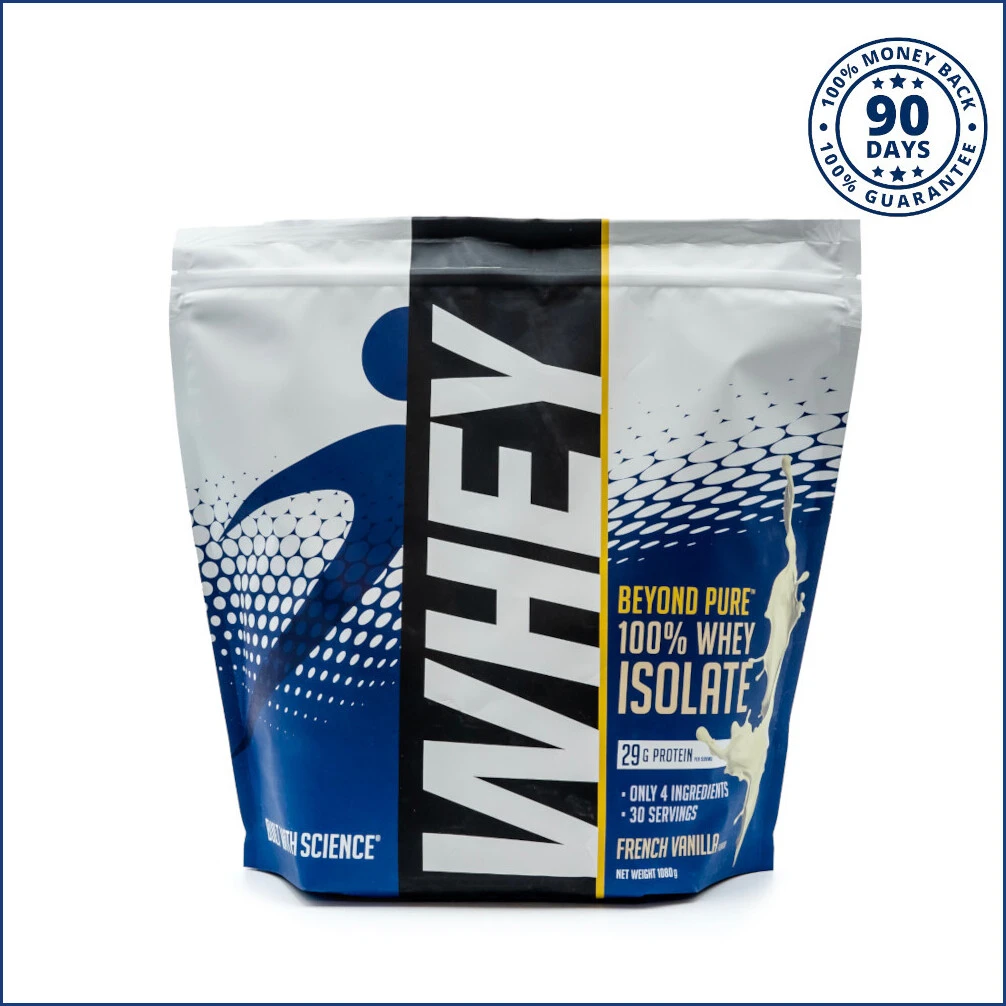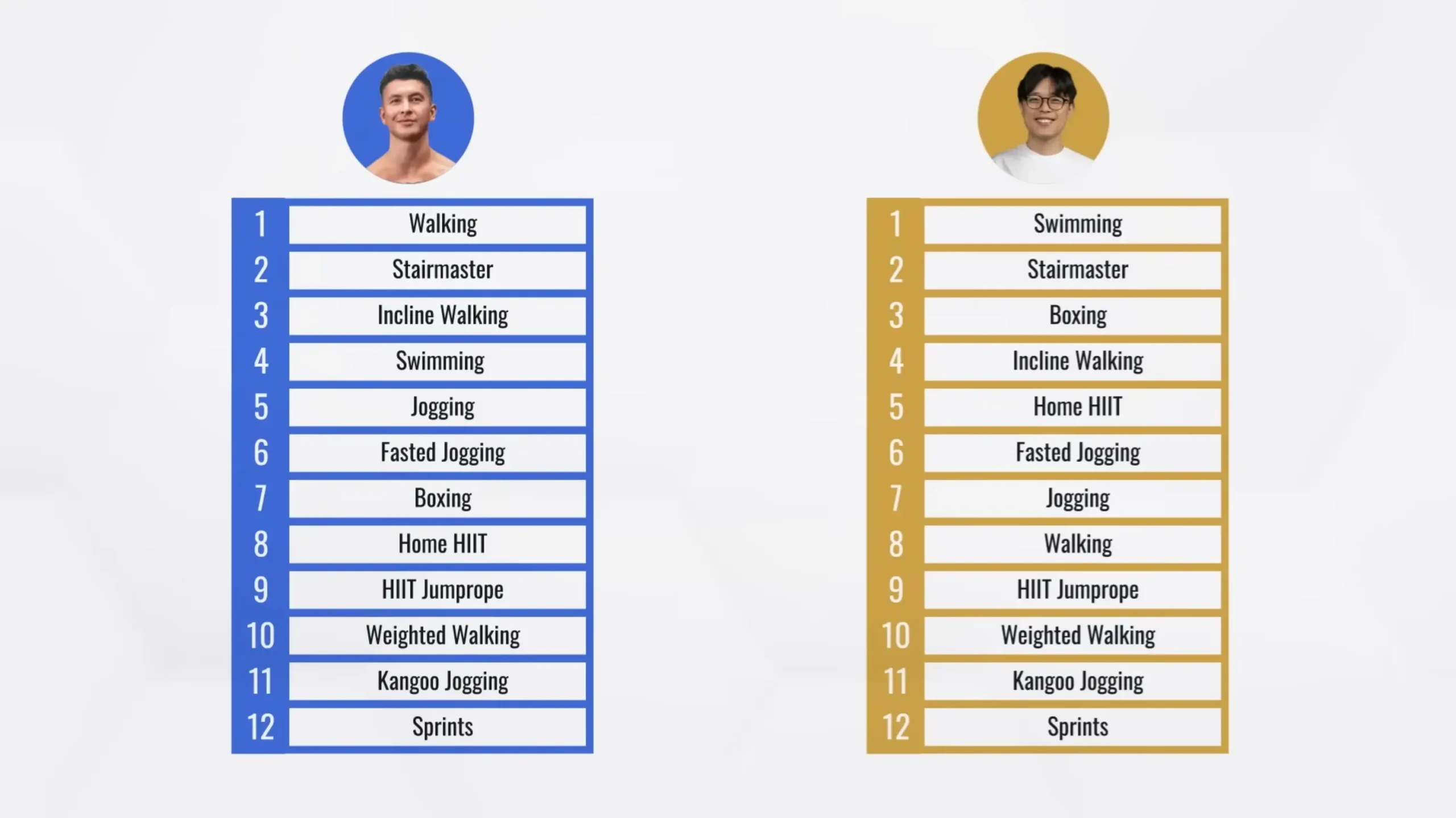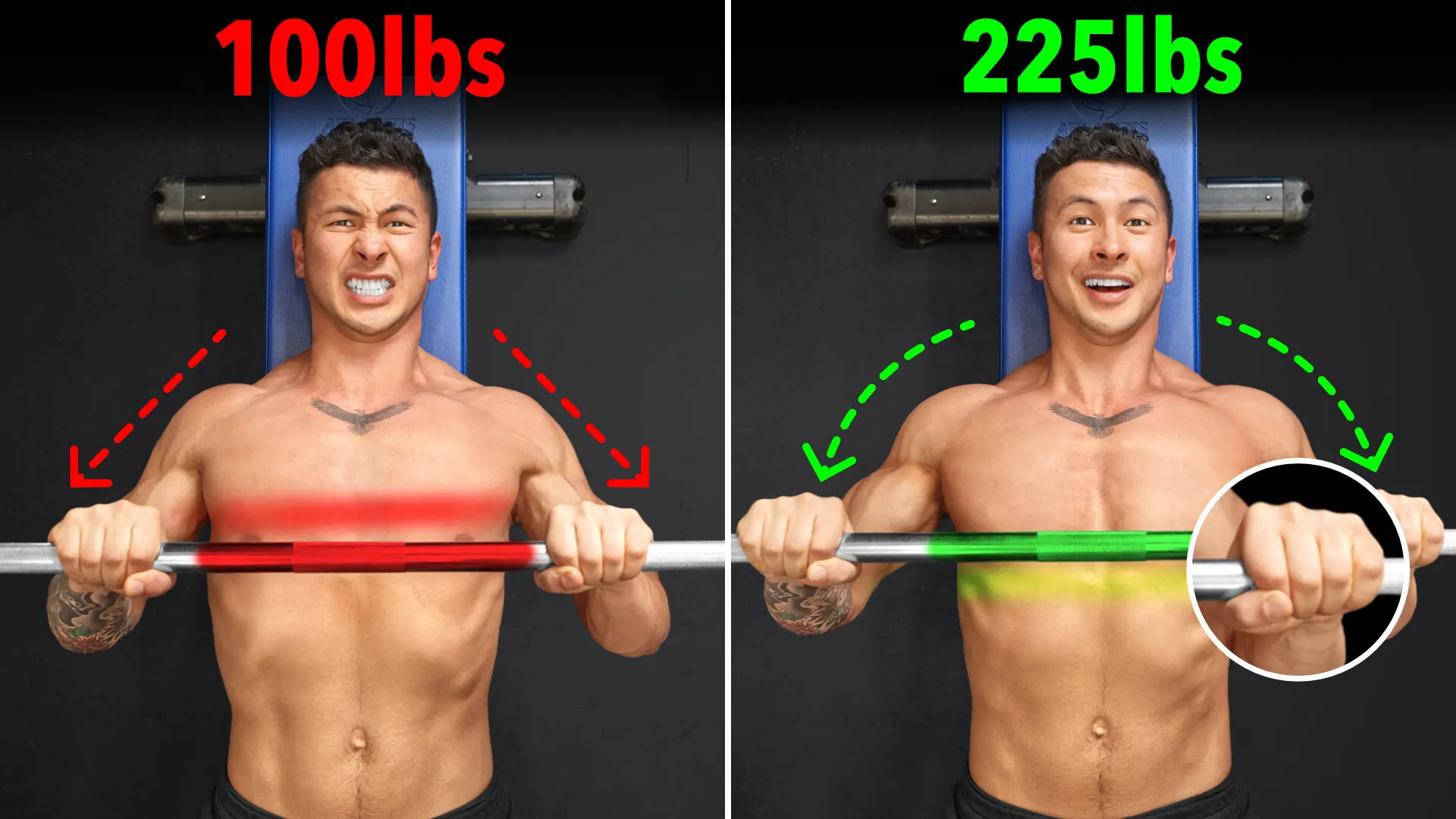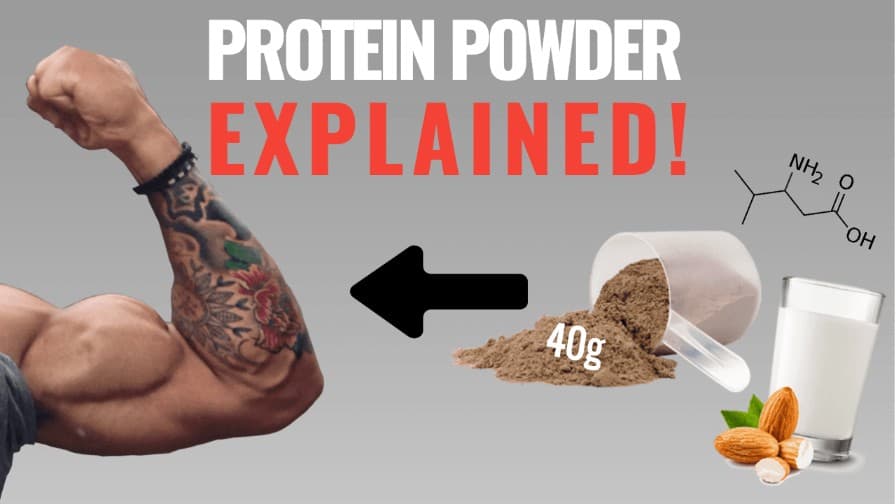
Protein Powder: How to Best Use It For Muscle Growth (15 Studies)
If you want to learn how to best use protein powder to build muscle based on current research, then you need to read this article...
Protein powder is by far the most widely consumed supplement within the fitness industry, and for good reason. It’s convenient, contains high quality protein and it’s a lot more cost-efficient when compared to other protein sources. And not only that, but it’s also one of the few supplements that’s heavily backed by research in terms of its safety, muscle building properties, and several other benefits.
However, despite the popularity of protein powder, most people are often left clueless when it comes to how to choose the best type of protein...
...and even moreso when it comes to how to best use it to build muscle.
And unfortunately, asking the sales guy at your local supplement store will likely just leave you even more confused or misinformed than you were to begin with.
But luckily, in this article, I’ll clear everything up for you and show you exactly how to maximize the effectiveness of protein powder by looking at the following points:
- Best type of protein powder
- When to take your protein shake
- How much to take and how often
- What to take your protein with
Let's get started!
Before that: if you're looking for a training program that'll always help you supplement and train most optimally for muscle growth, I've got just the thing for you. Every BWS program is designed to be an all-in-one, science-based process that’ll get you to your dream physique FAST. And best of all? It's all rooted in science. For more information:
Click the button below to take my analysis quiz to discover the best program for you:
↓
#1: Best Type of Protein Powder
When it comes to picking a protein powder, the sheer amount of options definitely can be overwhelming...
Just to name a few, there's:
- whey protein
- casein protein
- plant-based/vegan protein powders (pea protein, hemp protein, wheat protein, etc.)
- egg protein
- rice protein
And more!
But to keep it simple, research indicates that when compared to other forms of protein powder:
Whey and casein have the highest essential amino acid content and are the best at simulating muscle protein synthesis.
Meaning that they’re going to be your best options.
Now as for the difference between whey and casein and which one is better, it mainly has to do with their digestive properties.
Whey protein powder is a faster digesting protein that rapidly spikes protein synthesis for a short period of time:
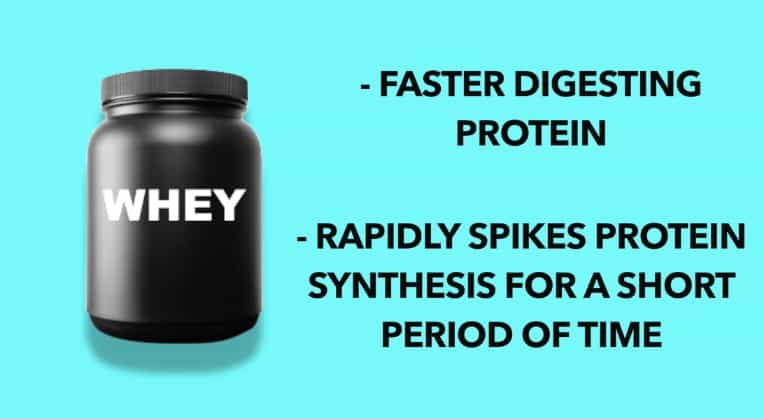
Whereas Casein protein powder is a slower digesting protein that gradually increases protein synthesis over a longer period of time:
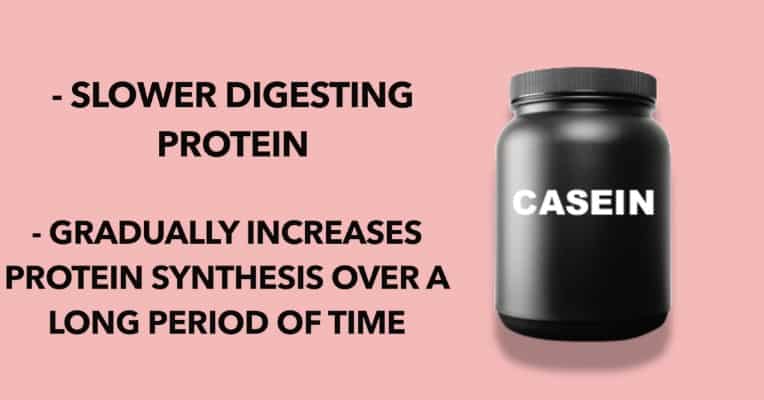
But generally, I’d advise sticking with Whey over Casein since it has a slightly higher leucine content AND because research, such as this 2015 literature review on the topic, tends to favour whey over casein when it comes to elevating protein synthesis and promoting gains in muscle mass.
More specifically, I’d recommend sticking to Whey Isolate since it’s the purest form of whey protein and contains the least lactose if that’s an issue for you.
However, with that being said, as you’ll see later on in this video, if you’re seeking to maximize your results then casein does have a unique potential application and may be something you still want to consider in addition to whey.
Plant-Based/Vegan Protein Powders?
As for vegans who can’t intake whey or casein, although research shows that plant protein powders don’t stimulate muscle protein synthesis as well as whey or casein does...
...research also shows that this can be potentially compensated by ingesting a greater amount of plant protein and/or simply ensuring you intake adequate amino acids through various food sources. Something for you to keep in mind!
#2: When To Take Your Protein Shake
Although most people are firm believers that protein shakes are meant to be taken right after your workout, research actually doesn’t fully support this idea.
For example, as shown in this 2013 literature review on the topic:
Ingesting protein immediately post-workout doesn’t seem to be very important if you’ve already had a pre-workout meal with sufficient protein.
Multiple other studies support this idea by emphasizing that this “one hour post-workout anabolic window” may only apply to fasted training where there’s no pre-ingestion of protein.
Whereas if you’ve ingested protein sometime before your workout, it essentially renders the timing of your post-workout protein shake useless.
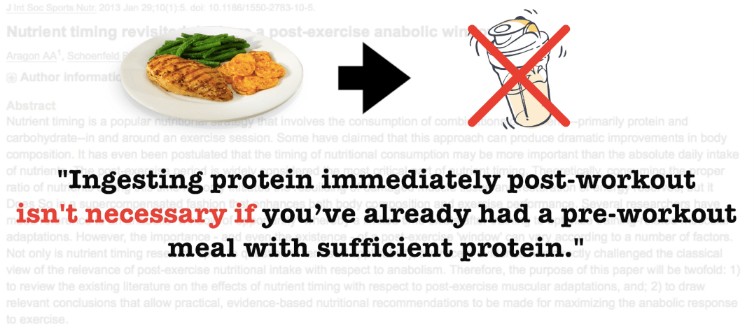
Which just means that a post-workout protein shake isn’t as important as we thought it was if you’re in a fed state.
And in fact, if you haven’t had any protein before your workout, research even suggests that ingesting your shake before your workout is more beneficial than after.
For example, this study from the American Journal of Physiology shows just that. The researchers found that when subjects in a fasted state ingested protein before their workout, they experienced significantly higher muscle protein synthesis when compared to subjects who ingested their protein immediately after their workout!
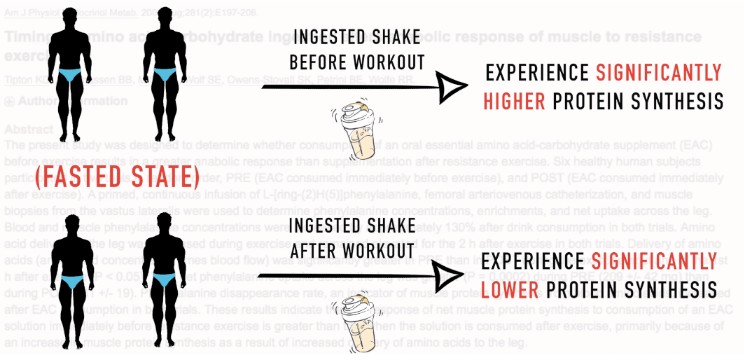
Therefore, when it comes to the timing of your protein shake, I’d suggest the following:
1) If you’ve ingested protein at some point before your workout:
- A post-workout protein shake doesn’t seem to be absolutely necessary
- In this case, you can have your protein shake at any time during the day to simply boost your daily protein intake
- But since a post-workout Whey protein shake is convenient for most people, is fast-digesting, and helps spread out your protein intake throughout the day, it may still very well be the ideal time for you to take
2) If you haven't ingested any protein before your workout:
- Ingesting your protein shake shortly before your workout is likely the best option to maximize protein synthesis
3) If you're planning on workout out in a fasted state:
- Ingesting your protein shake within an hour or so after your workout seems to be ideal
In addition to this, as mentioned earlier, to maximize your results you might also want to consider ingesting casein protein powder shortly before bed. This is because multiple recent studies have found that intaking at least 40g of a slow digesting protein before bed helps improve overnight muscle protein synthesis...
..which theoretically leads to better muscle recovery and growth overtime.
And since casein is a slow digesting protein that makes intaking this 40g of protein shortly before bed more convenient, it might be something you want to incorporate in addition to your whey protein.
Of course, your protein shake timing isn't the only thing that matters. There are also other nutritional factors you need to pay attention to if you wish to boost your muscle gains. Our 3-on-1 coaching program can help. You will not only have a dietitian to customize your nutrition plan, but also a coach to focus on your training plans. You'll achieve your dream physique in record-breaking time. Sounds good? Let's get started then:
Click the button below to find out more about the 3-on-1 coaching program:
↓
#3: How Much Protein To Take & How Often?
As for how much protein to take at a time, multiple studies have arrived at the general consensus that:
20-25 grams of a high quality protein like Whey is sufficient for maximizing muscle protein synthesis.
Therefore, that's a good minimum you’d want to aim for when taking it.
It’s also worth nothing though that having more than this might provide a small additional benefit...
With one recent 2016 paper concluding that intaking 40g of whey protein stimulated muscle protein synthesis to a greater extent than a 20 gram dose.
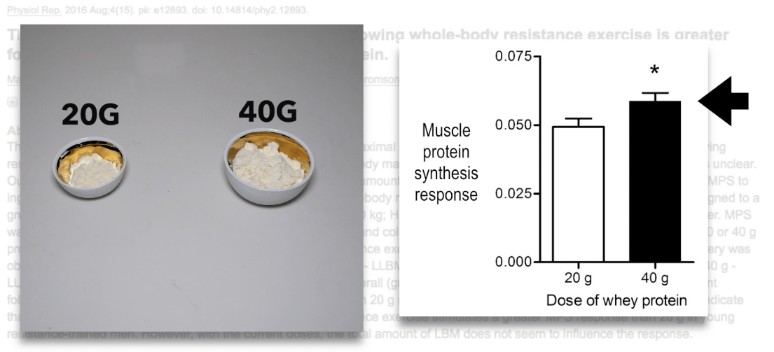
And this finding was significant regardless of the subjects’ body weight and lean body mass.
But generally, it seems that sticking to a dose of anywhere between 20g-40g is likely your best bet - with 40g providing a slight edge in terms of protein synthesis.
Now as for how often to take protein, this just ultimately depends on your own total daily protein requirements.
You generally want to prioritize in taking your protein from food sources since they provide a variety of other amino acids and nutrients, and then use protein powder to supplement this if needed.
For example, we know that sticking to a protein intake of roughly 0.73-1g/lb of bodyweight is ideal:
So let's say a 170lb individual requires 170g of protein a day, and can comfortably intake 130g of protein from real food sources. They could then take one 40g scoop of protein daily regardless of if they worked out or not to help them reach their daily goal:
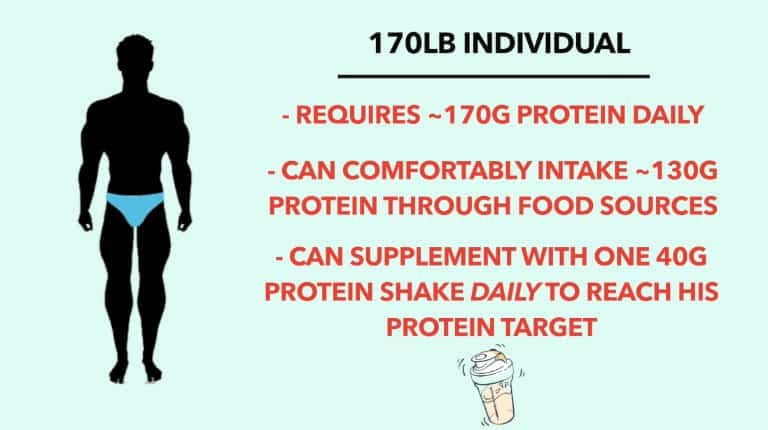
And if you needed to take more than this to reach your goal, that’s perfectly fine. Whatever helps you hit your daily protein target conveniently and consistently is what will be ideal.
#4 What To Take Your Protein Powder With
To keep it simple, multiple studies have shown that:
Although co-ingesting protein powder with additional carbs and/or fat does slow down digestion, it does not increase nor decrease muscle protein synthesis rates.
Simply meaning that you can feel free to take your protein with whatever you’d prefer: whether that be milk, water, or something else.
However, in my opinion, if you’re focusing on gaining weight then it can be helpful to take your protein with dairy milk for the additional 100-200 calories and extra protein it provides.
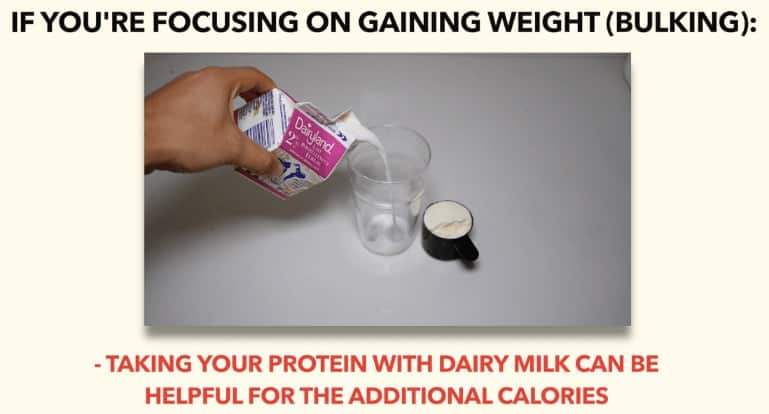
Whereas if you’re focusing on losing fat, it might be best to take it with something like almond milk or water, which just helps you conveniently save an extra couple hundred calories or so.
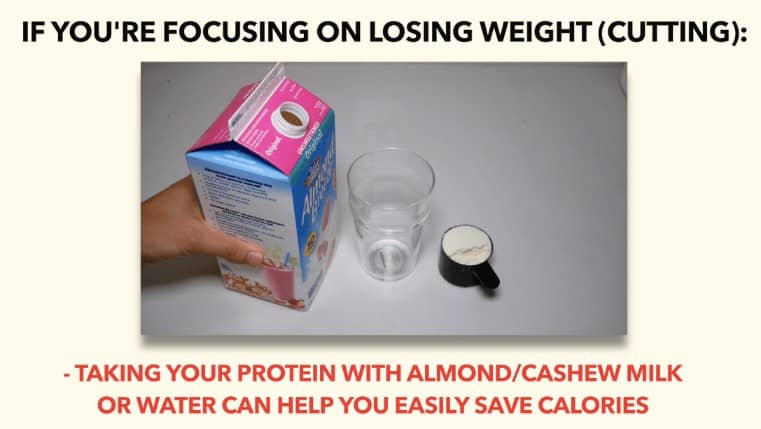
Key Takeaways
So to sum the article up, here are the key takeaways:
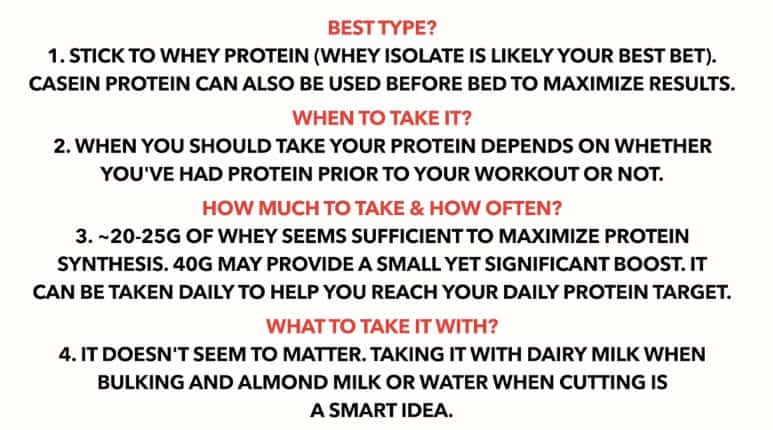
One thing I want you to keep in mind though is that as with all supplements, protein powder is not anything magical and is by no means necessary to see results. However, if you struggle to hit your daily protein intake through food alone, then this is where it becomes useful and something for you to consider!
That’s it for this article! Hope this helps out. Let me know if you have any questions down below – and give me a follow on Instagram , Facebook , and Youtube where I’ll be posting informative content on a more regular basis. Cheers!
And for those looking for a complete step-by-step program that uses science to show you how to properly train AND eat week after week to transform your body in the most efficient and injury-free way possible, then:
Click the button below to take my analysis quiz to discover the best program for you:
↓

